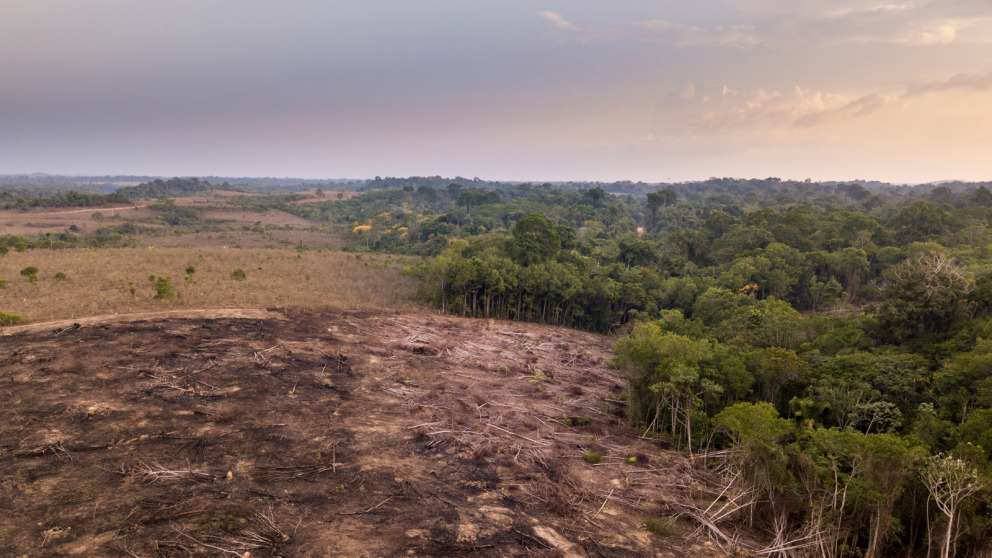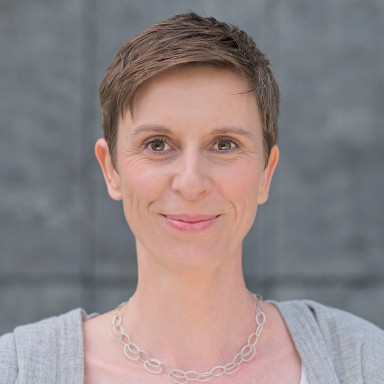Earth Overshoot Day: We Need a More Sustainable Diet
24.07.2024

I was recently contacted by the German television broadcaster ZDF with a request for an interview on the importance of our diet for sustainability. The occasion for their TV report is the global Earth Overshoot Day, whose date is calculated anew every year. This year it is August 1. On this day, human consumption outstrips the resources nature can regenerate within a year. However, if the entire world population lived and did business the way we do in Germany, the date would have been May 2, 2024, and we would need three Earths to cover our current excess demand. Even if the calculation of such days can be questioned, their symbolic power generates a lot of media coverage. As a researcher, I always have to be very brief in such interviews, so here I would like to use my answers to the journalists’ questions as an opportunity for a blog post on the subject of nutrition.
Our diet plays a major role in the global socio-ecological crisis we are currently facing. It has a particular impact on land use change, biodiversity, the climate, freshwater utilisation and biogeochemical cycles. The production and consumption of animal products, i.e., meat, fish and dairy products, are particularly relevant.
Global meat production has increased by around 50 per cent in the last 20 years. This has led to significant changes in global land use, such as deforestation for the cultivation of animal feed and other purposes. It is important to note that of all the crops produced globally, only around 40 per cent are used directly for human consumption and almost the same amount for animal feed. The loss of green corridors, combined with the heavy use of pesticides, have significantly impaired the diversity and numbers of insects, birds, amphibians and many mammals. In addition to changes on land, overfishing of the world's oceans is also a major contributor to the global biodiversity loss. The current changes in biodiversity are so severe that scientists already consider this to be the sixth mass extinction in the history of life on Earth.
Intensely farmed soils store less carbon than forests, moors or uncultivated green spaces, which in turn has an impact on climate change. The heavy use of fertilizers containing nitrogen and phosphate leads to negative changes in water bodies and groundwater. In addition, the production of animal products, for example a kilo of beef, consumes much more water than plant-based foods.
Considering the complex effects of food production on the environment and society, our handling of food is anything but sustainable. According to the German Federal Ministry of Food and Agriculture, around one third of the food produced globally is thrown away. In Germany, around 11 million tonnes of food waste were generated in 2020, more than half of that in private households, where each person threw away an average of 79 kilograms of food.
Individual diet changes and structural approaches
A lot needs to change! On the one hand, we can change our diet to be more sustainable and plant-based. It is important to choose seasonal, regional and organic produce wherever possible, as this helps to cut the use of pesticides and fertilisers and can also reduce transport routes. Currently, around two thirds of vegetables and three quarters of fruit in Germany are imported from abroad. They are often grown under questionable conditions, packaged in plastic for transport and sold relatively cheaply in supermarkets.
However, structural changes are also essential to ensure on the one hand that everyone can afford a sustainable diet with regional products from certified organic farming. On the other hand, structural changes are needed for farmers to receive fair prices for their products.
First, a reduced VAT rate or subsidies for sustainable, plant-based, regional organic products would be helpful in the agricultural and food transition. Products that are not sustainable have to be more expensive so that their true socio-ecological costs are reflected in the price and customers buy less of them.
Second, reforming agricultural subsidy schemes and promoting organic, regenerative agriculture is important. Currently, only around 11 per cent of agricultural land in Germany is farmed organically - that is clearly not enough. The German government has the target of increasing this proportion to 30 per cent by 2030. It will be interesting to see whether and how this target is achieved within the next five and a half years.
Third, the power of food retail groups needs to be curtailed so that food producers can operate sustainably and receive fair prices. This goes hand in hand with strengthening regional cycles in order to promote smaller businesses and reduce long transport routes.
Fourth, it is crucial to throw away less food: Reducing food waste and switching to a more plant-based diet would also make much more land available for organic farming, as less feed would have to be produced for livestock farming.
More sustainable community catering
There is also great potential in communal catering: by switching to a meat-reduced diet and changing pricing according to sustainability criteria, educational and care facilities and canteens could more easily offer healthy, balanced and sustainable dishes. Meat consumption in Germany is slowly declining and the demand for plant-based foods is increasing. It therefore seems likely that meat-reduced offers in communal catering would be accepted. At the same time, a lot could certainly be achieved by making adjustments to vocational training in the gastronomic field. Here, greater emphasis could be placed on the production of vegetarian and vegan dishes to demonstrate that these can be tasty alternatives to currywurst and schnitzel. It is interesting to note that the ZDF report describes a hospital in Berlin that buys most of its vegetables from community-supported agriculture. This idea can also work for nurseries and schools. But what is behind the term community-supported agriculture?
![The aim of the [pane] project is to research the social, economic and ecological effects of community-supported agriculture in structurally weak rural regions.](/sites/default/files/styles/content_image_full_width/public/2024-07/shutterstock_BearFotos.jpg?itok=3w3e1pde)
Community-supported agriculture as an approach to regional food supply
For community-supported agriculture (CSA), farmers or vegetable gardeners join forces with a community of consumers. At the beginning of each year, the farm sets a financial benchmark that is necessary to supply the community with fresh vegetables every week of that year. A CSA-membership usually lasts one year and you pay a monthly fee for a weekly harvest share that covers the costs for sustainable vegetable cultivation, wages and farm maintenance for one year. The CSA-farm can market its produce without intermediaries and community members know exactly where their food comes from and how it is grown. The special thing about CSA is that the members support their vegetable gardeners not only financially through their monthly fee for their harvest share: Members are always welcome to help out, for example in the fields, with organisational activities such as transport, administration, farm festivals or public relations work. Even though community-supported farms may differ from one another in their organisation, they are usually participatory to a certain degree.
As part of the [pane] project, my team and I are conducting research into the social, economic and ecological effects of community-supported agriculture in rural regions of eastern Germany. A blog post will follow soon and until then we are happy to answer any questions you may have.
More information:
- Federal Ministry of Food and Agriculture
- Federal Information Centre for Agriculture
- Food and Agriculture Organisation of the United Nations FAO
- Meat Atlas 2021
- German Community Supported Agriculture Network
- Project [pane] - Social, Economic, and Ecological Effects of Participatory Sustainable Food Production
